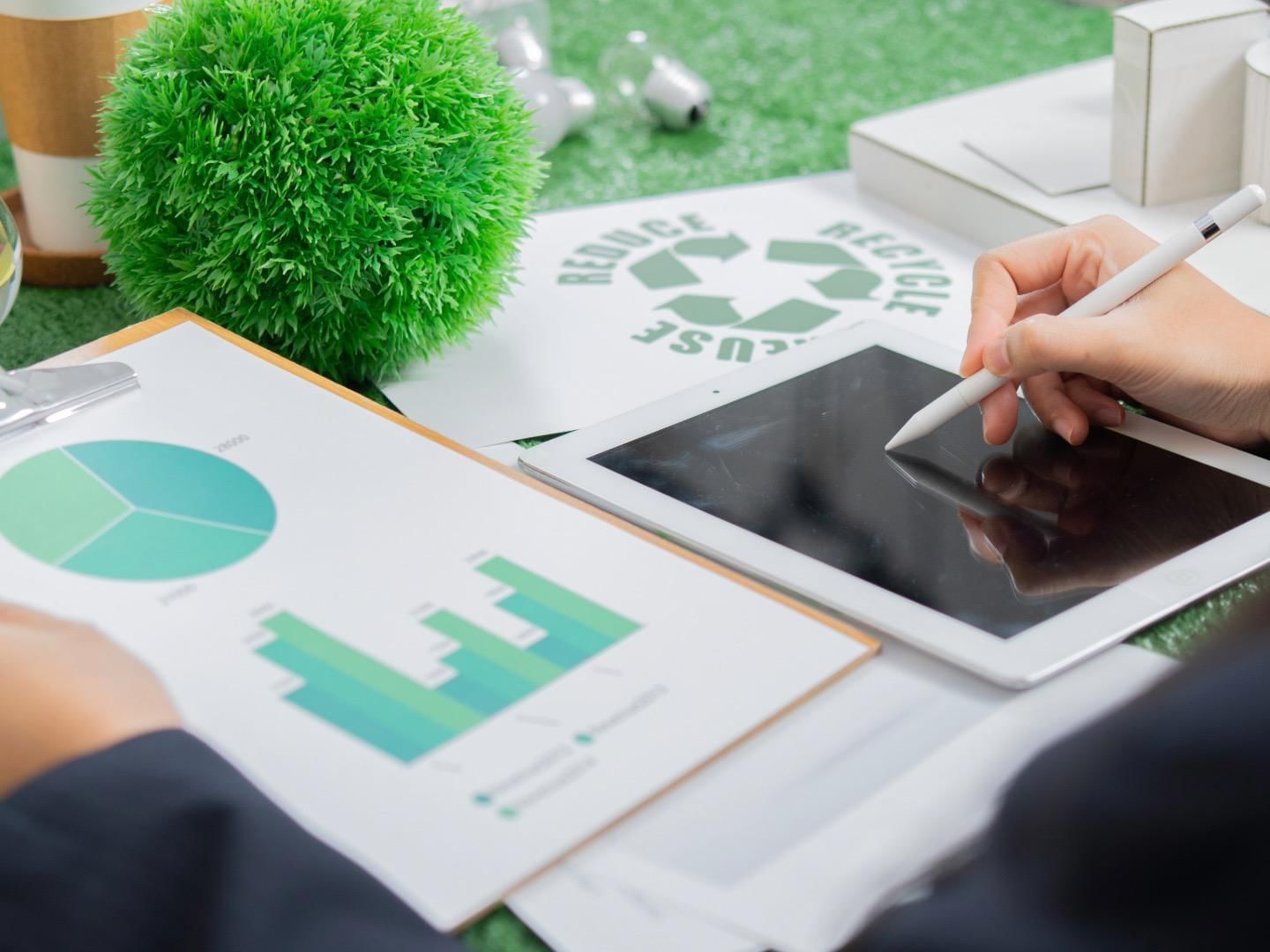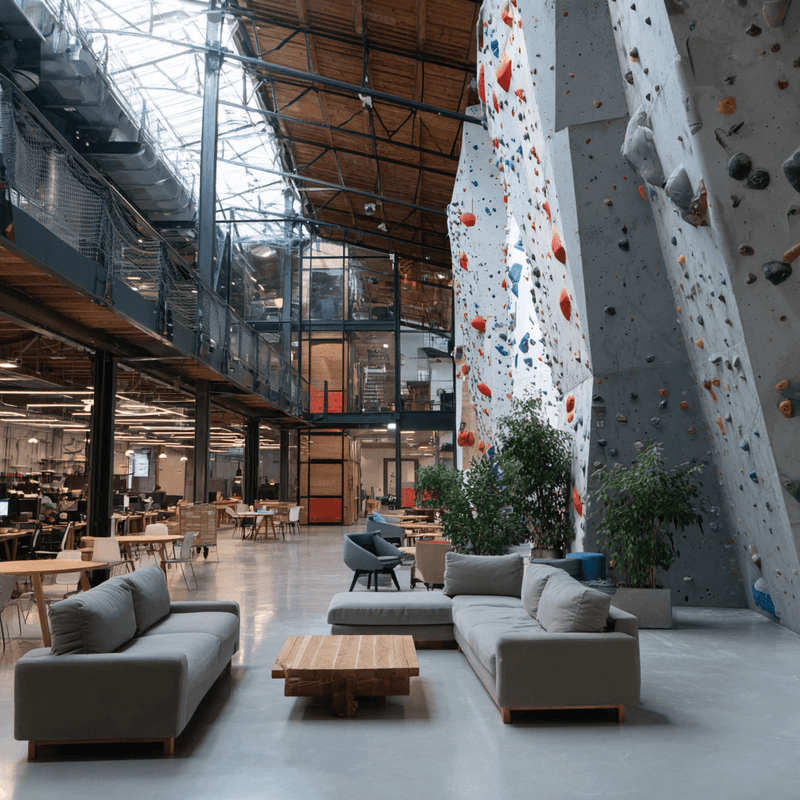
Whether you're looking to improve the energy performance of your real estate assets, reduce your carbon footprint, improve the well-being of your users... or perhaps all of the above, companies today are required to make substantial efforts in the area of CSR (Corporate Social Responsibility). Legislation has been tightened and even structured in 2023, leaving little room for casual interpretation. What are the most popular standards? Can coworking spaces contribute to a company's CSR efforts? Are they a more sustainable alternative? Here are some answers.
The European Union coordinates to structure the real estate sector
Most companies today are looking to optimize their buildings on a sustainable basis, and are aiming for environmental performance. As buildings are one of the biggest sources of energy consumption in Europe, it is crucial to change our business models.
The European Union's Energy Performance of Buildings Directive (EPBD ), due to come into force in 2021, argues that working on the energy performance of buildings will drastically reduce their environmental impact.performance would drastically reduce CO2 emissions, combat energy poverty and reduce people's vulnerability to energy prices. The EU's strong ambition is to achieve zero carbon by 2050, but there's still a long way to go. Since the EU was set up, legislation has been structured, strengthened and refined to meet the realities of each market and the ambitions of each country. The CSRD directive, which focuses on the performance of buildings, is now a benchmark legislation, imposing harmonization and transparency in published ESG(Environmental, Social and Governance) data. Among the many other initiatives deployed at European level to aim for carbon neutrality, we might also mention Race to Zero, supported by the United Nations, Cop 27 and theParis Agreement.
The European Taxonomy, for its part, establishes specific regulations and classifications for all economic activities, based on very precise scientific criteria.criteria based on climate change mitigation, adaptation, water, the circular economy, pollution and biodiversity. This makes it possible to recognize activities that have an impact or are sustainable.
What are the standards and labels for sustainable real estate?
In the sustainable real estate landscape, the search for standards and labels is becoming an imperative for players in the sector. Let's take a look at the main labels to aim for:
BREEAM (Building Research Establishment Environmental Assessment Method)
This internationally recognized British label assesses the environmental performance of buildings, taking into account Divers criteria such as energy management, indoor air quality and water management. BREEAM aims to guarantee environmentally-friendly construction from design to delivery.
HQE (High Environmental Quality)
A must in France, the HQE label takes a holistic approach to assessing the environmental quality of buildings. From eco-construction to sustainable management, it covers a broad spectrum including energy, health, comfort and waste management.
Effinergie
This French label focuses on the energy performance of new or renovated buildings. It distinguishes several levels, from the BBC (Bâtiment Basse Consommation) to the Maison à Énergie Positive, encouraging energy-efficient construction.
BEPOS (Positive Energy Building)
This standard is part of a bold vision of the future, encouraging buildings that produce more energy than they consume. An ambitious approach to reducing the carbon footprint of the real estate sector.
B-Corp for Benefit Corporation
Launched in 2006 in the United States, this label certifies and promotes companies with a positive social and environmental impact.
WELL Building Standard
Placing occupant well-being at the heart of its assessment, WELL measures the impact of buildings on physical and mental health. This international label promotes healthy indoor environments, with an emphasis on air quality, nutrition and ergonomics.
LEED (Leadership in Energy and Environmental Design)
Originating in the United States, the LEED label is now used worldwide. It classifies buildings according to their energy and environmental performance, encouraging the use of sustainable materials and responsible practices.
Each of these labels and certifications makes a unique contribution to creating environmentally-friendly buildings and building a sustainable future. By making informed choices, real estate players can shape a greener, more ethical built landscape.
How do coworking spaces contribute to corporate CSR efforts?
Already well aware of the issue, coworking and flexible office spaces will have to face up to increasingly stringent CSR requirements by 2024. In particular, they will have to help reduce companies' carbon footprints. Some players, such as Morning and Deskeo, have already developed initiatives to support this change.
Morning, for example, has set up an impact score for its spaces, which is a ratio between the CO2 emissions of its spaces and the surface area of the worksite. The stated aim? To stay below 35 kg of CO2. Deskeo's is based on the implementation of a carbon footprint for all its activities. The brand found that 20% of emissions were generated by furniture, the second largest consumption item after users. The coworking brand has therefore committed to reusing materials and extending the lifespan of its equipment. A commendable initiative!
Finally, let's not forget the social impact that flexible office spaces can have, since according to a recent study, 60% of users feel that coworking spaces promote their well-being! With this in mind, the famous slogan "Energy is our future, let's save it" remains as relevant as ever. It's up to each and every one of us to redouble our efforts on a daily basis, both at home and at work, to help slow global warming. The 10 eco-friendly tips listed here have the dual aim of preserving our planet and engaging all your employees in a CSR approach.
Whether you're planning to improve the energy performance of your real estate, reduce your carbon footprint or guarantee the well-being of your users, 2024 is the year when companies are called upon to redouble their efforts in terms of Corporate Social Responsibility (CSR). Legislation, now structured and reinforced, imposes substantial obligations on players in the real estate sector. Choosing the path of sustainable real estate in 2024 means committing to a meticulous process, informed by standards and labels, and supported by a community of players determined to shape a future built on ecological and ethical principles. Tomorrow's real estate begins with responsible choices and concerted action for a more sustainable future.
-
Top 5 coworking spaces in Nantes

07/01/2026 Top 5 coworking spaces in Nantes
In Nantes, the office real estate market is experiencing a trompe-l'œil recovery: with 42,100 m² placed in the first half of 2025 (+14% vs. 2024), momentum seems to be picking up, but the market remains structurally fragile.New supply is scarce, average floor space is shrinking (386 m²), and the rise of telecommuting is causing office occupancy rates to fall below 50% on certain days. However, coworking, and more specifically the flexible office in Nantes, is emerging as a concrete response to new working practices for major accounts and their employees.
-
Sport coworking: when the workspace becomes a place of well-being and performance

22/12/2025 Sport coworking: when the workspace becomes a place of well-being and performance
After the democratization of telecommuting, the rise of the flex-office and the growing popularity of third places, a new trend is quietly but surely emerging: sports coworking. A trend as powerful as the French craze for running in France. At the crossroads of well-being, performance and transformed uses, these hybrid spaces are challenging the way we live and work.
-
Announcing the birth of new coworking spaces

01/12/2025 Announcing the birth of new coworking spaces
Looks like the family is growing! Everywhere in France in 2025, new coworking spaces and flexible workspaces are springing up, in Paris of course, but also in Rennes, Dijon, Clermont, Brest, and even in small towns that had never seen a shared office before.